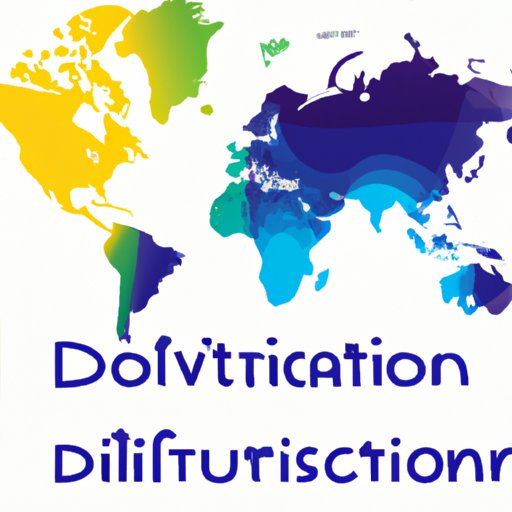Introduction
Cultural diffusion is the spread of culture from one group to another. It occurs when individuals or groups of people adopt the beliefs, customs, practices, values, and material objects of other cultures. Cultural diffusion has been a part of human history since the beginning of time and is an important factor in the development of society.
Cultural diffusion is often associated with globalization, which is the process of connecting different societies and cultures through increased trade, travel, and communication. Globalization has brought about many changes, including the spread of new ideas and technologies, as well as the blending of cultures.
Benefits of Cultural Diffusion
The benefits of cultural diffusion are numerous. It allows for the sharing of knowledge and ideas between different cultures and can lead to greater understanding and appreciation of different cultures. Additionally, cultural diffusion can lead to increased economic activity, as different cultures may be able to exchange goods and services.
Furthermore, cultural diffusion can contribute to the enrichment of cultural identity by introducing new traditions and customs from other cultures. For example, the introduction of Chinese cuisine to the United States has become a popular tradition, while the influence of Latin American music can be heard in many genres of popular music today.

Pros and Cons of Cultural Diffusion
Cultural diffusion can have both positive and negative effects. On the one hand, it can lead to the loss of traditional customs and values, as well as the potential for cultural appropriation. On the other hand, it can also lead to the development of new and unique cultures that are the result of the blending of different cultural elements.
In order to maximize the positive effects of cultural diffusion, it is important to respect and understand the traditions and values of other cultures. It is also important to be mindful of the potential for cultural appropriation, as this can lead to negative attitudes and stereotypes.
Technology in Cultural Diffusion
The role of technology in cultural diffusion cannot be overstated. The internet and social media have made it easier than ever before for people to connect and share ideas across geographical boundaries. Additionally, advances in transportation technology have made it easier for people to travel, allowing them to experience different cultures firsthand.
Technology has also enabled the spread of popular culture. Movies, television shows, and music have become global phenomena, with their influence reaching far beyond their country of origin. This has led to a greater awareness and appreciation of different cultures, and has helped to bridge cultural divides.
Challenges of Cultural Diffusion in a Globalized World
Despite the many benefits that cultural diffusion can bring, there are also challenges associated with it. The most significant challenge is the potential for cultural homogenization. As different cultures come into contact with one another, they may begin to adopt similar behaviors and beliefs. This can lead to the loss of cultural diversity and can have a negative impact on the uniqueness and richness of a culture.
Another challenge associated with cultural diffusion is the potential for cultural imperialism. This is when one culture exerts its influence on another culture, resulting in the erosion of local customs and values. This can lead to resentment and conflict between cultures, as one attempts to impose its own values and beliefs on another.
Conclusion
Cultural diffusion is an important part of the human experience. It has allowed for the sharing of knowledge and ideas between different cultures and has helped to bridge cultural divides. However, it is important to be aware of the potential challenges associated with cultural diffusion in a globalized world. Understanding and respecting the traditions and values of other cultures is essential in order to maximize the positive effects of cultural diffusion.
(Note: Is this article not meeting your expectations? Do you have knowledge or insights to share? Unlock new opportunities and expand your reach by joining our authors team. Click Registration to join us and share your expertise with our readers.)
